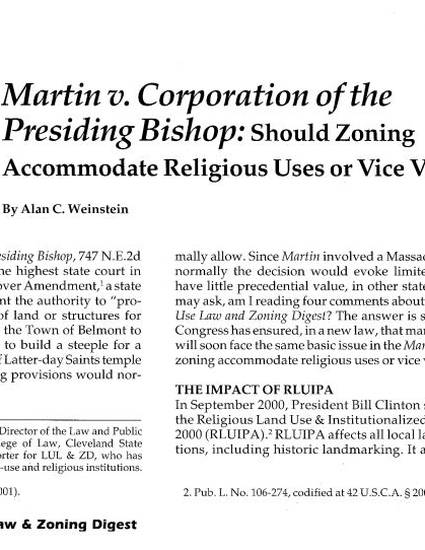
- Religious Land Use and Institutionalized Persons Act,
- religious accommodation,
- zoning
In Martin v. Corporation of the Presiding Bishop, 747 N.E. 2d 131 (Mass. 2001), the highest court in Massachusetts rules that the Dover Amendment, a state statutes that denies local government the authority to "prohibit, regulate, or restrict the use of land or structures for religious purposes..." authorized the town of Belmont to grant a church special permission to build a steeple for a newly built Church of Jesus Christ of Latter Day Saints temple that was taller than the local zoning provisions would normally allow. Since Martin involved a Massachusetts statute, normally the decision would evoke limited interest, and would have little precedential value in other states. Yet the U.S. Congress has ensured, in a new law, that many communities will soon face the same basic issue in the Martin case: Should zoning accommodate religious uses or vice- versa?
Available at: http://works.bepress.com/alan_weinstein/46/
